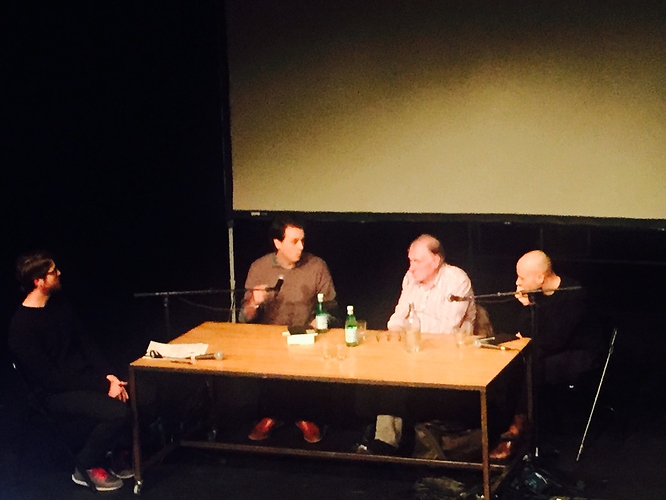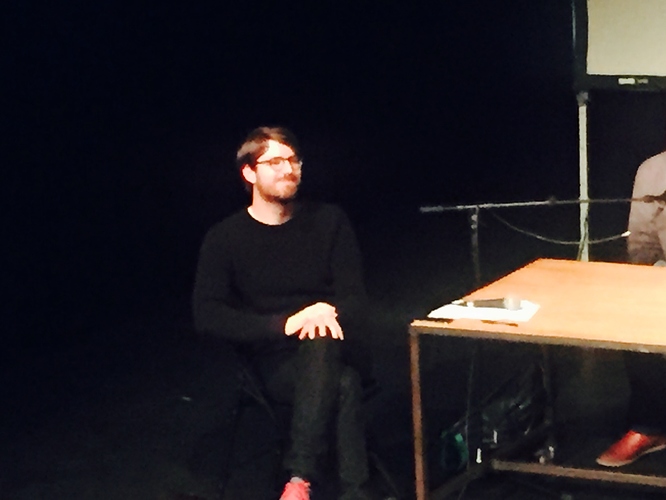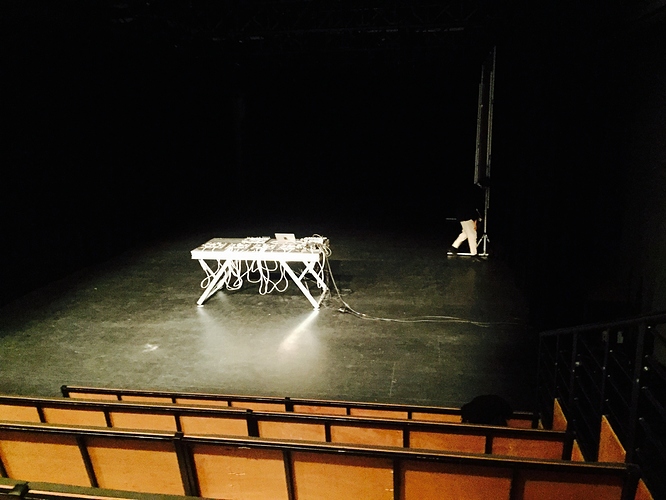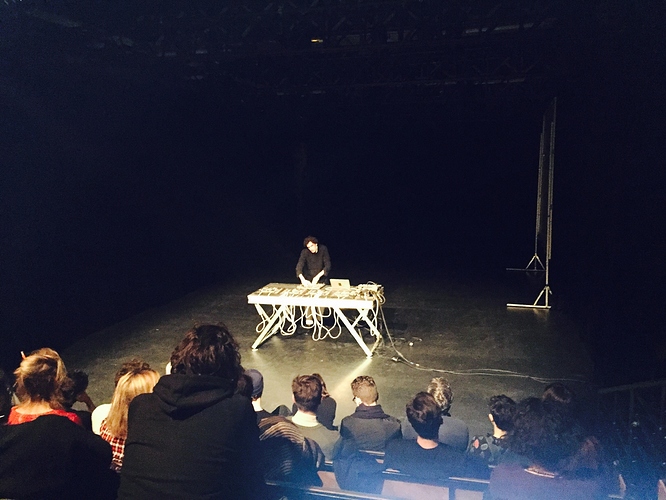Before opening up to comments, Garcia offers a poetic conclusion to a half-hour adventure through Priest’s oeuvre:
While speculating on reality, we won’t find major changes, but still we will find some changes. Literature is an acute way of making visible these minor changes.
The panel opens with Vincent Normand and Fabien Giraud joining at the table. The attention shifts to the essay Garcia has contributed to the inaugural issue of Glass Bead, The Photographic Real, wherein the themes discussed with Priest lead to a conversation on the magic of photography. Garcia states that if you believe that photography is keeping something from reality, from the presence of the object, then you must believe in its magic. The only way to be in front of a photograph is to believe in its continuity, a real continuity of information, light, but without any trace of its former matter. There’s always a small difference between the real and the photographic real. If you have many many pictures, says Garcia, you have many many worlds.



